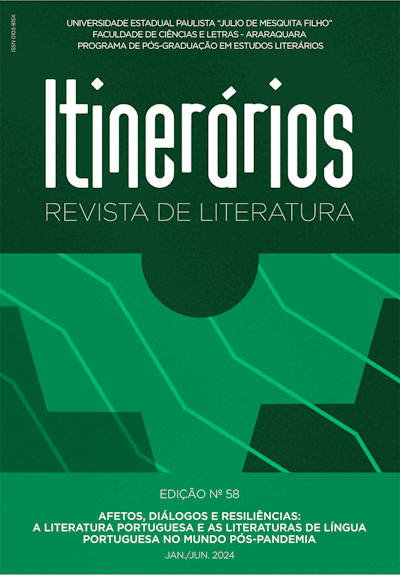Maria da Cunha no Brasil
uma poetisa que amava mulheres
DOI:
https://doi.org/10.58943/irl.v1i58.18760Palabras clave:
Maria da Cunha (1872-1917), Poesia, Crônica, Homoerotismo, A Época (1912-1919)Resumen
A poetisa portuguesa Maria da Cunha (1872-1917) teve uma vida atribulada. Casou-se em 1895, publicou seu livro de poesias, Trindades, em 1909, com segunda edição em 1911, divorciou-se em maio de 1912 e emigrou para o Brasil. Maria da Cunha chegou no Rio de Janeiro a 16 de setembro, após breve passagem pela França, acompanhada da jornalista Virgínia Quaresma (1882-1973). A poetisa precisou, então, viver da própria pena. Ela conseguiu emprego no jornal carioca A Época, no qual foi editora cultural, cronista e onde publicou alguns poemas até meados de 1914. Depois, circulou entre o Rio e São Paulo, proferindo conferências e convivendo com a escritora portuguesa imigrante Ana de Villalobos Galheto (1863-1944) e com a poetisa e educadora brasileira Eunice Caldas (1879-1967), até falecer, em São Paulo, em 1o de janeiro de 1917. Neste artigo, apresento alguns dados biográficos dessa escritora, principalmente de seus últimos anos, e como o Brasil aparece em sua obra poética e cronística. Destacarei parte de sua rede de sociabilidade e como as mulheres são importantes em sua produção. Apontarei como a afetividade por mulheres aparece em seus textos.
Descargas
Publicado
Número
Sección
Licencia
Os manuscritos aceitos e publicados são de propriedade da revista Itinerários. É vedada a submissão integral ou parcial do manuscrito a qualquer outro periódico. A responsabilidade do conteúdo dos artigos é exclusiva dos autores. É vedada a tradução para outro idioma sem a autorização escrita do Editor ouvida a Comissão Editorial.

